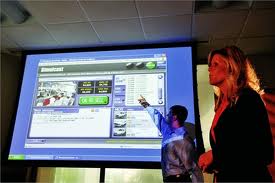Improving your gas mileage is something that everyone thinks about from one time or another. It could be because gas prices are on the rise again, a concern for the environment, or some other immediate concern. Regardless of the reason, there are a variety of factors that play into your cars gas mileage, which means that you can address this issue in a variety of ways. Here are some quick car tips that will help you improve your gas mileage, as well as some myths that you shouldn't fall for.
Improve Your Gas Mileage Before You Buy
One of the easiest ways to get great gas mileage is to simply purchase a fuel efficient vehicle. Here are some car purchasing tips that will help you improve your gas mileage immediately.
Do
- Look for hybrid vehicles – According to the EPA and DOE, hybrids can combine the benefits of gas and electric power, which can lead to improved gas mileage.
- Look for AFVs – Alternative Fuel Vehicles that use fuel sources like ethanol or natural gas often have a much better mile per gallon rating
Myths
- Small Cars are Key – With advancing technologies, small cars are not always going to be the most fuel efficient. In fact, in 2010, 5 of the top 10 most efficient vehicles are mid-sized cars.
- Going Manual – Because of new technologies, automatic transmissions have improved so much that they are often more efficient than a manual transmission.
Improving Your Gas Mileage After You Buy
Once you have purchased a vehicle that is already a fuel efficient model, the rest is up to you. Here is a look at some good ways to improve your gas mileage even more as well as some myths that may be holding you back.
Do
- Don't Speed – Your gas mileage will dramatically worsen after you pass 60 mph.
- Cruise Control – Cruise control can do wonders for your gas mileage during long stints on the highway.
- Keep It Light – Try not to keep unnecessary items in your vehicle. The heavier it is, the worse your gas mileage will be. Additionally, make a particular effort to ensure that you never load anything on the roof of your vehicle. The added wind resistance will destroy your gas mileage.
- Maintenance – There are a lot of different ways that you can improve your gas mileage through regular maintenance. This includes: keeping your tires properly inflated, change your oil regularly to reduce engine friction, keep you car well-tuned.
Myths
- Warming Up and Idling – Many people believe it is more efficient to warm up a vehicle before it is driven. However, modern fuel injection technologies start very efficiently, plus engines can be driven within seconds of being started without affecting gas mileage. Additionally, the old advice was to idle instead of starting and shutting down your engine. Again, because of current technologies, your car will use less gas starting and stopping than by letting it idle. In general, idling now costs you about 1 to 2 cents per minute.
- Avoid Old Cars – Another common myth is that your car will become much more inefficient as it ages. The EPA has done numerous tests and found that as long as the vehicle is properly maintained, it will see very little decrease in gas mileage even when it is 10 or 15 years old.
- Using Premium Fuel – If you car was not specifically designed for premium fuel, then you will like get zero benefit from premium fuel.
- Additives – There are a number of after-market additives that claim to improve your gas mileage, but so far none have been found to be helpful at all. The only exception is full conversions that meet EPA certification standards.
Hopefully these car tips and insight into current myths will pave a path for better gas mileage in your future.











